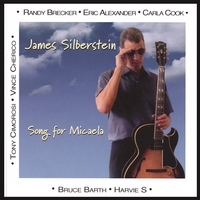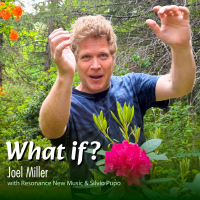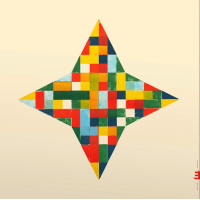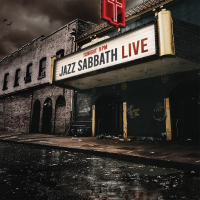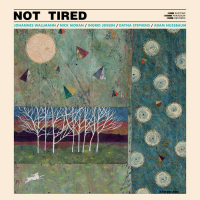Home » Jazz Articles » Album Review » John Heward Trio: Let Them Pass (Laissez-passer)
John Heward Trio: Let Them Pass (Laissez-passer)
Woodwind multi-instrumentalist Joe Giardullo, bassist Mike Bisio and drummer John Heward, who is the nominal leader of this trio, got together one day in May of '02 to record a series of explorations with the simple premise of reflection on their parents' and grandparents' immigration to Canada and the United States. The result, Let Them Pass , which refers to the immigrants arriving with little more than a "Laissez-passer" pass in their pockets, is a collection of seven numbered improvisations that create differentiation through instrumental variation and a lineage to known forms that are more tips of the hat than serious homage.
The first two pieces are intense workouts, with Giardullo utilizing extended techniques on tenor saxophone, clearly his main axe, and then piccolo. Bisio and Heward create a tempestuous background that, for all its magnitude, somehow comes across as static and unmoving. "Let Them Pass Three" changes the mood, however, with obscure references to the blues. Giardullo is again on tenor, and the piece starts spaciously but still expressionistic, with Bisio ultimately creating an ostinato bass figure that gives the piece some form. "Let Them Pass Four," with Giardullo on bass clarinet, is more abstract, with the trio alluding to their Middle Eastern and Eastern European lineage. More enigmatic still is "Let Them Pass Six," with Bisio creating broad strokes on arco bass alongside Giardullo's darker-hued alto flute.
By incorporating a variety of influences and historical perspectives, Heward and his trio take what could be just another free session and give it some meat and some clear distinction. While this kind of thing is clearly not for everyone, those who like to walk on the wilder side of free exploration will find much to like about Let Them Pass. The trio clearly understands how to pace a set, and by incorporating unquestionably obscured references, create a work that has enough variation to maintain interest throughout.
Track Listing
Let Them Pass One; Let Them Pass Two; Let Them Pass Three; Let Them Pass Four; Let Them Pass Five; Let Them Pass Six; Let Them Pass Seven
Personnel
John Heward (drums, percussion), Mike Bisio (bass), Joe Giardullo (tenor saxophone, piccolo, bass clarinet, alto flute)
Album information
Title: Let Them Pass (Laissez-passer) | Year Released: 2004 | Record Label: Drimala Records
Tags
PREVIOUS / NEXT
Support All About Jazz
 All About Jazz has been a pillar of jazz since 1995, championing it as an art form and, more importantly, supporting the musicians who make it. Our enduring commitment has made "AAJ" one of the most culturally important websites of its kind, read by hundreds of thousands of fans, musicians and industry figures every month.
All About Jazz has been a pillar of jazz since 1995, championing it as an art form and, more importantly, supporting the musicians who make it. Our enduring commitment has made "AAJ" one of the most culturally important websites of its kind, read by hundreds of thousands of fans, musicians and industry figures every month.



